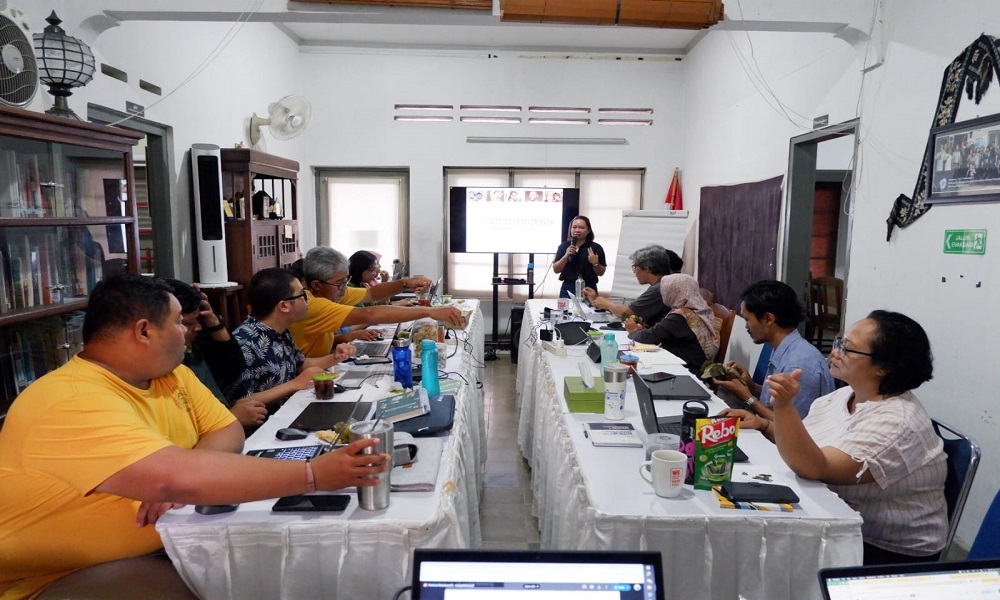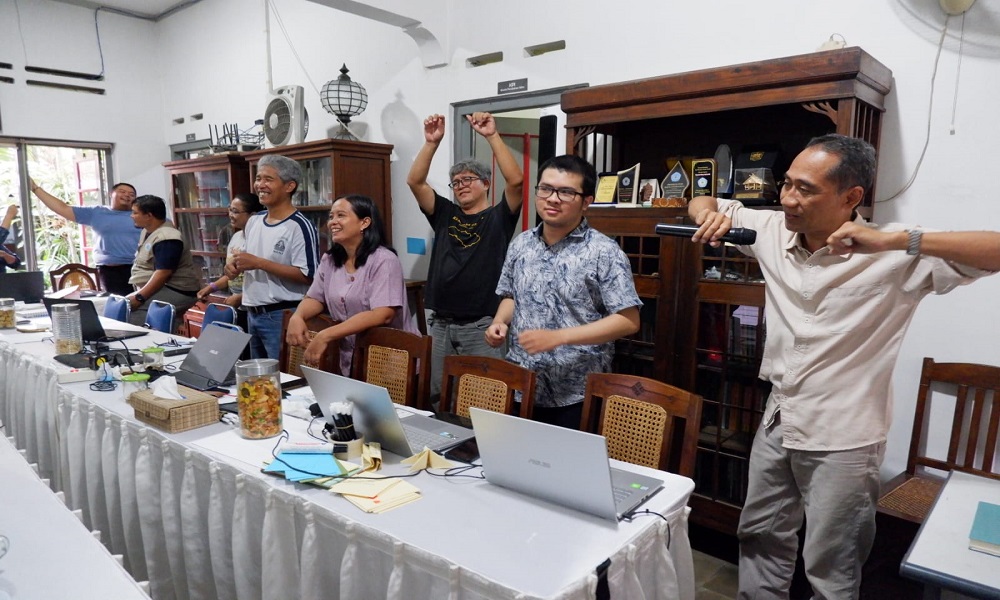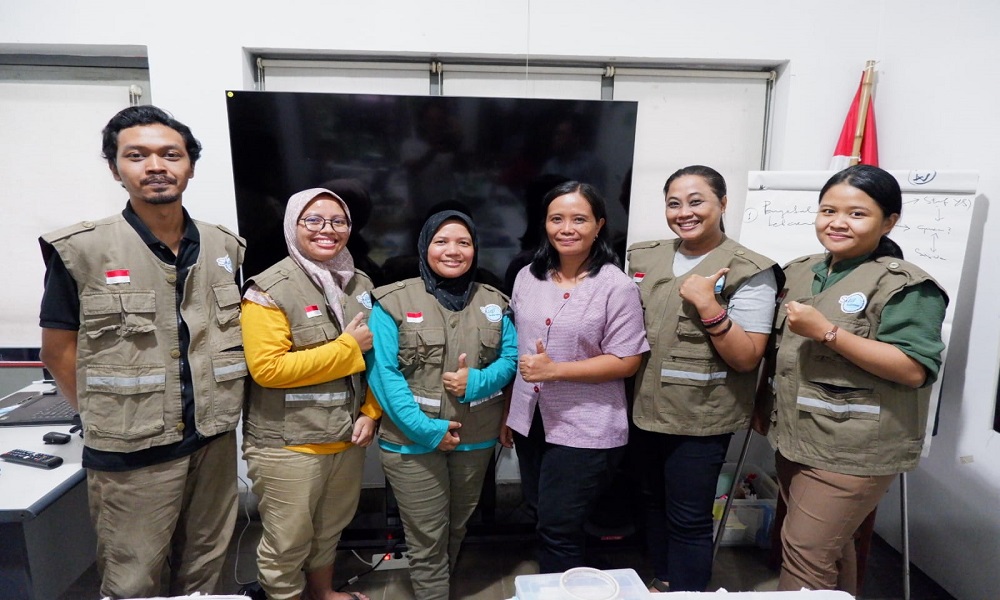
Currently the world is facing severe challenges, the earth is facing triple planet challenges namely climate change, biodiversity loss, and pollution. In Indonesia, climate change is characterized by rapidly rising temperatures, a trend in the rate of sea level rise, a significant downward trend in rainfall and an increased chance of daily extreme rainfall in the period 1998-2008. Indonesian children born in the past year will experience and deal with temperatures that are 7.7 times hotter than those experienced by their grandparents. Not only that, children will also face a 3.3 times greater threat of flooding and other disasters due to overflowing rivers and 1.9 times greater drought as part of the impacts of climate change. Indonesian children need protection from the risk of exposure to the increasingly severe impacts of the climate crisis. Children need the right information and the right methods to understand climate change and its impacts on themselves, their families, communities and the environment.
However, these needs cannot be met immediately. The first reason is that not all children have easy access to information related to climate crisis issues. Second, cultural priorities and family values are more focused on formal education, orientation to economically promising professions, so that the space for dialogue on social and environmental issues is neglected. Third, a "competitive" culture in schools that conditions children to prioritize academic achievement is sometimes still found. In addition, there is also a lack of adult role models and support for environmental conditions, so that children are not motivated to take action to 'protect the environment' and are less sensitive to their surroundings.

To begin with, in accordance with the cycle and system for running programs at YSI, a briefing and understanding was conducted in a workshop attended by all YSI staff. Here staff were invited to share the same perception about the conceptual framework of the program, develop an action plan and most importantly share roles and synergize in the implementation of the program that will run for 3 years, targeting 12 schools and more than 600 students in Yogyakarta and Sleman.
In the two-day workshop, several important points became the focus of the agenda. First, the Children Protection Policy (CPP) as the basis for all internal stakeholders working with children to understand this. Children have rights in their involvement and as subjects of the program. Second, discussing the concept and framework of the "Climate Justice For Children Rights Protection" program. The main objectives of this program are: Increase children's literacy and participation in realizing climate justice that protects children's rights in Yogyakarta. In the context of climate justice, climate change caused by global warming has the most impact on marginalized groups. Education and literacy are key approaches to raise children's awareness of the issue, enabling them to engage others in collective action. Schools are an effective level of change through the active role of children, teachers and parents.
Furthermore, the protection of children's rights in the context of climate justice was discussed. Indonesia's Law No. 35/2014 underpins the protection of children's rights against the impacts of climate change. The focus on climate justice is still rare compared to the issue of criminalization and child abuse. This project is expected to supplement the Merdeka curriculum, with children, teachers and parents as the main actors.

The involvement of program work and implementation is not only limited to project management, but Commissions and Bureaus also have a role in this project including the Disaster Management Commission, Climate Change Commission, Primary Health Care Commission, and CSO Strengthening Commission, each with specific tasks related to planning, implementation, and monitoring in accordance with the context and needs of the program in strategic issues and sectors contained in their respective mandates.

